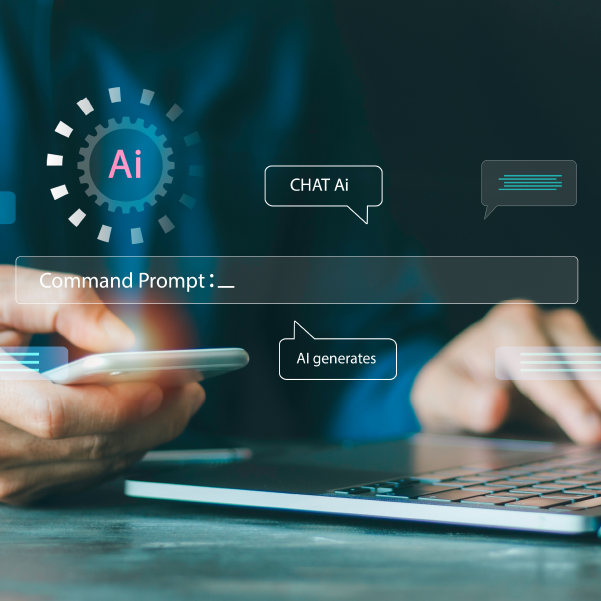The Rise of the Centaurs: How AI is Reshaping Our Future.
December 11, 2024
Shay Moradi | co-founder and Latent Space Navigator | OIAI

In a rapidly changing world, a new form of professional is emerging: the centaur—a figure that symbolises the symbiosis of human expertise and AI-driven augmentation. This co-intelligence paradigm allows humans and machines to collaborate as equals, reshaping knowledge work across a multitude of sectors. Information professionals, in particular, stand poised to lead this evolution, leveraging AI capabilities to streamline processes while enriching the contextual and ethical dimensions of the work.
Understanding Generative AI
Generative AI refers to algorithms that can create entirely new content, from text and images to music and code. Tools such as large language models—exemplified by systems like ChatGPT—are enabling unprecedented levels of on-demand content generation. For information professionals, these technologies offer far more than just productivity enhancements. They open doors to new forms of insight discovery, trend analysis, and strategic storytelling.
Yet, these same tools raise concerns. How do we maintain accuracy when AI can produce credible-sounding but fabricated information? How do we ensure intellectual property rights when AI-generated outputs mimic existing styles and voices? The challenges around authenticity, originality, and ethical stewardship of information demand that professionals engage deeply with these technologies, working to cultivate a balanced relationship between utility and integrity.
Becoming a Centaur: A How-To Guide for Information Professionals
Develop AI Literacy
Grasp the fundamentals of AI and generative models. Gain familiarity with their input-output mechanics, their data dependencies, and their inherent biases. Continuous learning is crucial as these technologies evolve rapidly.
Identify Complementary Skills
Hone uniquely human capacities—empathy, critical insight, complex synthesis. Information professionals excel in contextual interpretation, evaluative judgment, and nuanced communication. Cultivating these capacities ensures that AI tools reinforce rather than diminish professional value.
Practise Collaborative Problem-Solving
Integrate AI tools into workflows with purpose, seeing them as reliable partners. Whether evaluating large datasets, curating repositories,
or building taxonomies, use AI’s strengths in data processing and pattern recognition to augment human expertise.

Cultivate Critical Thinking
Generative AI can “hallucinate,” presenting confident falsehoods as truths. Vigilance, fact-checking, and source verification remain essential. The professional’s role as a discerning filter ensures accurate, trustworthy information delivery.
The Power of Human–AI Collaboration
Studies such as the Stanford AI Index Report (https://aiindex.stanford.edu/) illustrate how certain AI tools now surpass human benchmarks in tasks like summarisation and classification. Ethan Mollick, Co-Director of the Wharton Interactive’s Generative AI Lab, emphasises that these tools are not a replacement for human work but a means of augmentation (Mollick, “Using AI to Augment Human Intelligence”, 2023). He advocates “Co-Intelligence,” treating AI as a collaborator rather than a subordinate or competitor. By bringing AI into the workflow early, focusing on the human-in-the-loop model, and guiding the machine’s role, professionals can achieve greater depth, speed, and clarity in their outcomes.
In the legal sector, for instance, AI accelerates document review and case research, allowing humans to devote time to interpretation and strategy. In education, AI-driven platforms tailor learning experiences for students, enabling librarians and information specialists to concentrate on curating high-quality resources and mentoring learners. Information professionals can guide both colleagues and clients through these transformations, ensuring that advanced tools are harnessed ethically and effectively.

The Role of Information Professionals in the AI Era
- Guardians of Truth: Information professionals uphold standards of accuracy and authenticity. They refine machine outputs, ensuring that misinformation does not permeate organisational decisions.
- Context Providers: AI can produce content instantly, but it is context-blind. By framing data within historical, cultural, and disciplinary lenses, professionals imbue raw outputs with meaning.
- Fact-Checkers and Tuners: AI models must be managed. Professionals tune these systems, adjusting parameters, correcting errors, and establishing verification procedures that maintain trust.
Educators: Information professionals serve as AI literacy leaders. They facilitate understanding among their peers and stakeholders, ensuring the workforce can navigate these technologies responsibly.
Embracing the Future
The emergence of centaurs signals a paradigm shift in the information domain. By welcoming AI into their toolkit, information professionals can redefine their roles: from gatekeepers of static knowledge to dynamic advisors, strategic analysts, and ethical stewards of machine–human collaboration. At the same time, attention to human character—such as critical reasoning, moral judgment, and creative interpretation—ensures that the integration of AI does not lead to what Marshall McLuhan cautioned as a form of “amputation,” where reliance on technology displaces human faculties.
The key is balance. AI can automate the repetitive and mundane, but for now it cannot fully replace the depth of human judgement. By developing AI fluency, maintaining vigilance against misinformation, and championing ethical best practices, information professionals ensure that technology amplifies rather than undermines their value. The future belongs to organisations and individuals who pair a machine’s computational brilliance with the human centered moral and interpretive abilities, forging a new era of enriched, co-intelligent information work.
About the Author
Shay Moradi is a co-founder and Latent Space Navigator at OIAI, Obvious Institute for Augmented Intelligence, a forward-thinking creative studio exploring the use of Generative AI to amplify human capabilities. OIAI’s focus on augmenting human intelligence and creativity lies at the heart of reshaping how professionals across various fields engage with data, narratives, and ideas.
Article references available on request.
The views and opinions expressed in this article are those of the authors and contributors and do not necessarily reflect the official policy or position of Prenax.